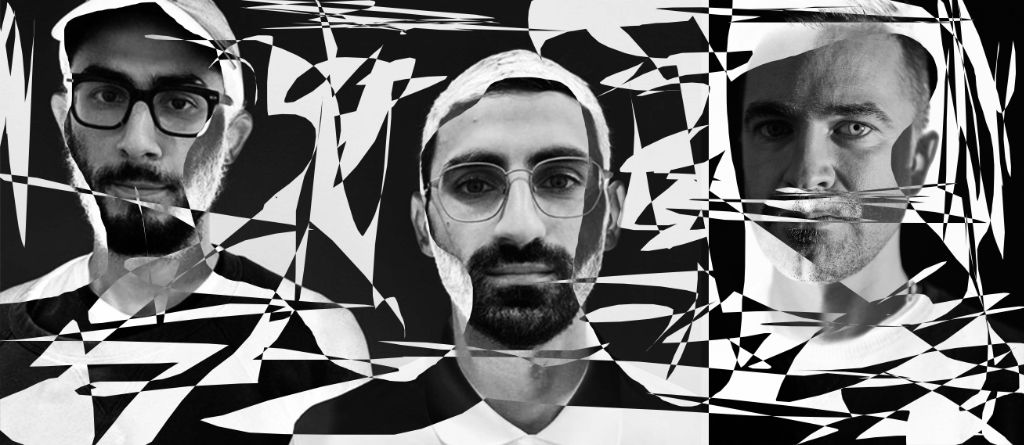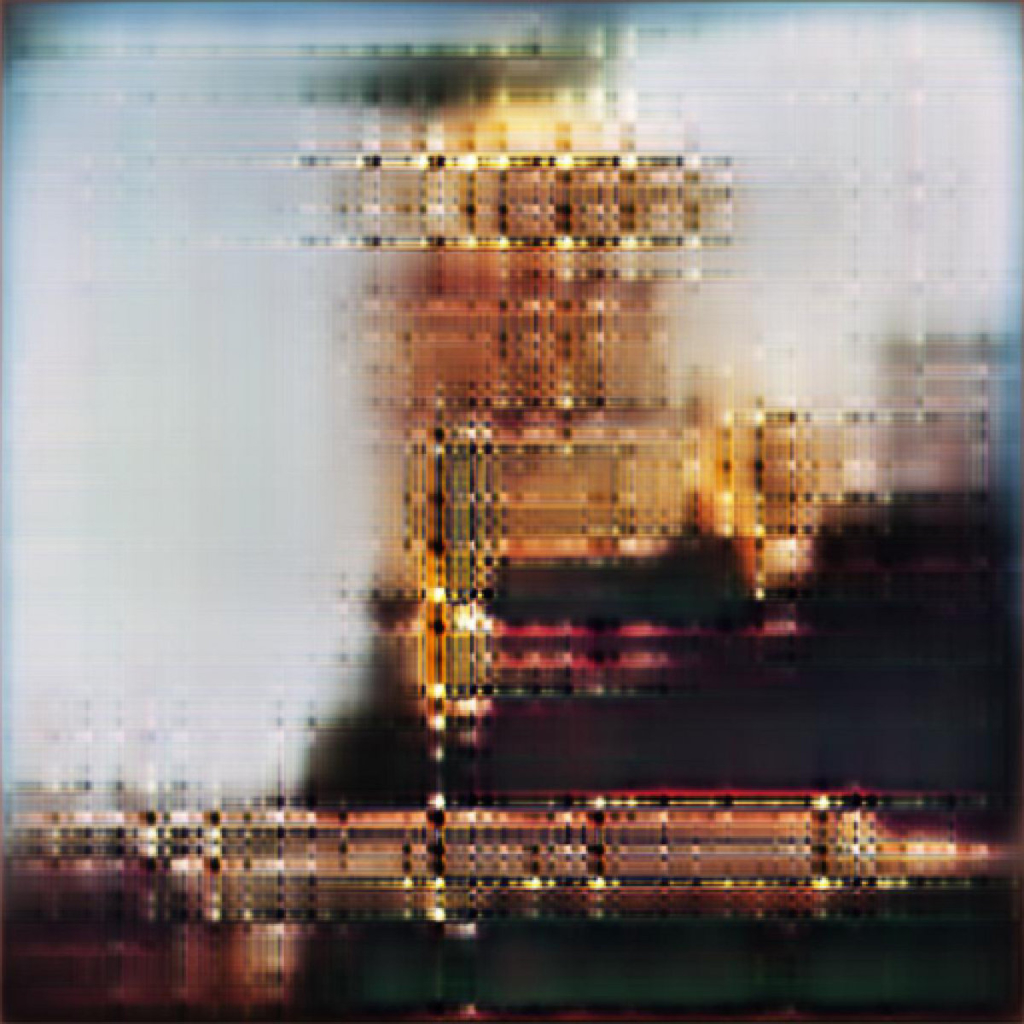Text by Olya Karlovich

In the Saint Abdullah project, New York-based Iranian-Canadian brothers Moh and Mehdi create sounds influenced by the Middle East’s social, political, and cultural aspects, challenging the Western world’s stereotypical misconceptions about Muslims. Their fearless music is a blend of field recordings from Tehran and samples of Shiite ceremonies with hip-hop beats, free jazz accompaniments, dub, ambient, and noise.
The work of Irish producer Ian McDonnell AKA Eomac, also spans across genres — from classic rave and eerie techno to experimental electronics. The artist is a master of glitchy percussion and raw sound design and experiments a lot with samples. His music appeals to the ideas of humanity and deep connections between people rather than political context, which, however, does not make it less sincere or exciting.
When Moh and Mehdi first heard Eomac at a friend’s house, it literally blew their minds. That was the Bedouin Trax album, Ian’s exploration of Islamic and Arabic strings and percussion instruments. We couldn’t even imagine that some Irish dude was behind that record. We thought it was a kid from Baghdad who did it. Sometime later, Saint Abdullah contacted Eomac, asking if he would like to do a collaboration. It turned out that Ian is also a fan of the brothers’ work, so the answer was yes.
In September, Saint Abdullah and Eomac released a Patience Of A Traitor album on Nicolas Jaar’s Other People. The record speaks to preserving timeless things by revisiting the past. Its concept is based on symbolic images inspired by personal artists’ experiences. For Saint Abdullah, the Persian bathhouse — the role it played in building community and the bathing rituals — became such an ultimate symbol, a connecting link in the musical narrative. A lot of our conceptual conversations are about making a sound that is about the present. It is not about some crazy futuristic ideas […]. And we were thinking about things that are our past but ought to be carried forward. And the bathhouse came across our conversation as a wonderful symbol of that. We are interested in slowness in time whenever you think it is scattered, super fast, and just too much.
Speaking of temporality, the duo adds: We’re lucky in the digital world that we can revisit things by virtual film, sound, and by word. And those revisiting pose questions. And then another thing is that you have to have a perspective on where the world is headed or the things you see every moment of your existence. But those two elements juxtaposed each other to come up with what we should keep, what we should hold on to, and what we should let go.
While working on Patience Of A Traitor, Eomac also shared with Moh and Mehdi the story of timeless symbols that are important to him. Being a child, he felt a deep connection with hymns and the musical traditions of Christianity. But the church boded disappointment using its influences to control the Irish people for centuries. In this sense, the Catholic church in Ireland, or Shia Islam in Iran, have a lot in common, Saint Abdullah states.
Even in the collaborative project, Moh and Mehdi stay faithful to their vision. Discussing the conceptual side of the album, they talk about socially driven music and political influences. But even if you don’t consider any ideological underpinning behind Patience Of A Traitor, the joint musical expression of Eomac and Saint Abdullah still has a very subtle and emotive impact. After all, as Eomac notes, the music is a very truthful expression. And the concept then fits alongside it.


In such a reverent attitude towards music as an exceptional experience, the artists are on the same page, which forms the solid basis for their co-creation, along with honesty and mutual respect. And although Saint Abdillah and Eomac have only communicated virtually due to the pandemic, they invariably try to act as if they are one collective. At the same time, their production approaches are quite different. Moh and Mehdi work very intuitively, while Ian picks up ideas right off the bat and shapes them so quickly. Ian is so good that you can even send him a voice note with a sort of percussion sound, and he will mimicry. He just works this way. And that’s interesting when you combine the purpose with accidentalism, say the brothers.
Dozens of folders and audio messages with samples and sound clips — the artists exchanged everything that came to mind. Remembering this, Sant Abdullah emphasises: We can do whatever…We are free about the sounds we explore. But the main thing with collaboration is honesty to break from what is amazing and mediocre. Otherwise, it won’t move forward. Eomac agrees that the interesting thing about collaborative projects is that they allow you to try things you will probably never do on your own.
Patience Of A Traitor is really exploratory in a variety of things from both a creative and technical side. For Eomac, the exciting challenge in the production process was to work with dance material but, in the end, also have it sound clear from the sonic perspective. As for Saint Abdullah, the brothers, for example, using a special sampling technique when making the opening track called At The Opposite Pole of Architectural Virtue. This track really breaks a lot of boundaries. We started by sampling more Middle Eastern and hip-hop beats. We sampled in a quite similar technique as on the God’s Image album, but the source material was different. For us, the source material was like a movie set. And if the setting changes, everything changes. So you let your samples, your setting, tell a story, Moh and Mehdi recall.
Choosing the tracks for Patience Of A Traitor, the musicians, again and again, listened to all the recorded material, about 150 productions. Saint Abdullah explains that the purpose of such a process is to determine what continues to sound interesting no matter what. It also helps them understand when work can be considered finished. The artists claim that today with the help of software, it’s always possible to make something better. But you won’t probably finish anything, being too much of a perfectionist. So there is a combination of a practical deadline and just a feeling that it’s finished. The heart, the feeling of the track, is already there or not. And making a masterpiece, you are not gonna change it, adds Eomac.
Patience Of A Traitor is only the first milestone in this exciting collaboration. More joint releases are to come. The artists would also like to create a live show together. We are all very prolific. We produce a lot of stuff so quickly. So there are like evergoing folders that we have right at the moment. And this is quite exciting to play with all this stuff and see where it goes, concludes Eomac.





